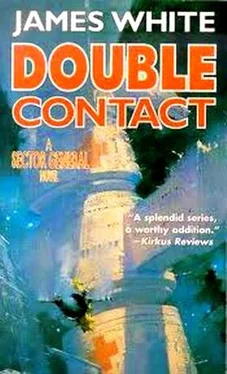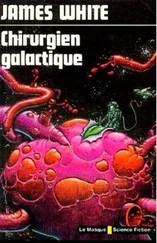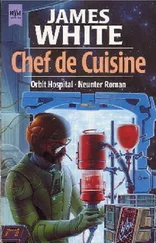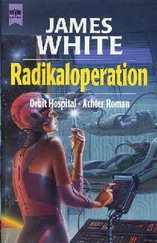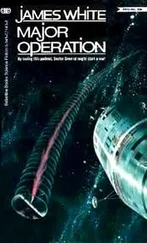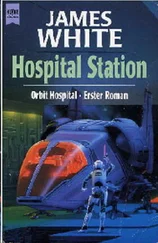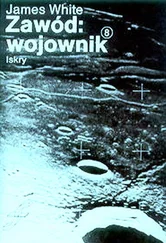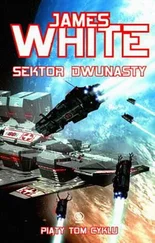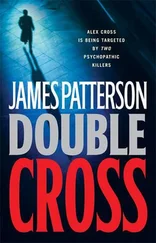The first searchsuit had been intercepted and destroyed by the druul while it was still in atmosphere, and the second, if it had succeeded in finding anything, had not returned to report. Searchsuit Three was the most advanced and technologically sophisticated fabrication to be produced by Trolanni science and, considering their planet’s deteriorating environment and diminished resources, it would almost certainly be the last. On its success rested the hopes of their species.
It was a suit built for the two of them and designed to cater to their physical needs for a period far beyond their most optimistic projected lifetimes on Trolanni. In it they would be in constant communication for as long as they lived. But the suit was huge — bigger by far, and with more complex and wide-ranging control and sensory systems, than either of its predecessors. So large was it that when they wore it, they would never in their remaining lifetimes be able to touch each other again. In spite of the greatly increased anti-druul defenses and the supporting treatments provided by the project’s engineers and psychologists, he wondered if the dangers facing them would be mental rather than physical.
“At least,” said Keet, as if reading her mind, “we’ll be able to play with our dolls.”
The inner office of Sector General’s new administrator and chief psychologist resembled a medieval torture chamber from the history of Earth, according to the memories of the current DBDG mind donor he was carrying. But the resemblance was not close — partly because a collection of tastefully-chosen views of non-terrestrial land and seascapes hung on the walls, and partly because the torture devices were actually weirdly shaped and deeply upholstered furniture. On these, the other-species staff that had business with Administrator Braithwaite could sit, squat, hang, or otherwise take their ease — assuming that whatever they had been doing had not warranted the criticism of the most powerful being in the hospital.
On this occasion Prilicla’s own conscience was clear, and as an empath he knew that the same condition applied to his smartly uniformed companion, Captain Fletcher, who was standing before the big desk beside him. The emotional radiation emanating from the similarly Earth-human Administrator Braithwaite, composed as it was of a strange combination of concern with a strong undercurrent of urgency, was such that Prilicla knew they would not be invited to make use of the office furniture. Even so, the other was for some reason feeling hesitant about speaking.
“Sir,” said the captain, glancing at Prilicla, who was hovering close to its shoulder and stirring a few strands of its brown head-fur, “I was told that you wanted to see me urgently. I met Senior Physician Prilicla on the way here, and it had received the same message. We only work together on ambulance-ship rescue missions, so presumably you have another job for Rhabwar?”
Braithwaite inclined its head without speaking. Before its recent promotion to administrator it had been a Monitor Corps officer like Fletcher, the principal assistant to the then-Chief Psychologist O’Mara, and an outwardly imperturbable individual who wore its uniform as if it had been born with it as a well-fitting and wrinkle-free second skin. Now that it had resigned its commission, its impeccably-tailored civilian clothing still gave the impression that it was completely in control of itself and, in all physical and mental respects, ready for inspection.
“Possibly,” it said finally.
Prilicla was beginning to share the captain’s growing feeling of puzzlement. He said, “The administrator feels hesitancy, friend Fletcher. I can read emotions but not thoughts, as you know, but I feel sure that friend Braithwaite would prefer that we volunteered for this particular mission.”
“I understand,” said Fletcher. Still looking at the administrator, he went on. “We appreciate the politeness, sir, but you must be pretty sure what our response will be, so you would save time by simply telling us to volunteer. Rhabwar is maintained in constant flight-readiness, as you well know. The technical and medical crew haven’t had any exercise with her for close on six months, and if the mission is urgent… well, we can’t hurry in hyperspace, so the only response time we can save will be between this office and the dock and, of course, our ship’s speed in getting us out to jump distance.” It hesitated and glanced quickly towards Prilicla, radiating a degree of uncertainty so mild that it was highly complimentary before it went on. “We volunteer.”
Prilicla, who was far from being physically robust, belonged to a species which considered cowardice, moral or otherwise, to be its prime survival characteristic. The possession of a highly developed empathic faculty forced him to be agreeable to everyone in order to keep the emotional radiation in his immediate surroundings as pleasant as possible. He spoke with greater hesitation.
“Friend Braithwaite,” he said cautiously, “what precisely are we volunteering for?”
“Thank you both,” said the administrator, radiating relief. It pressed a key on its desk console and went on. “I’ve transferred all the available information to your ship’s computer for later study. It isn’t much, and all we know for sure is that three distress beacons have been detonated within a standard day of each other from the same location in Sector Eighteen. As we would expect from one of the incompletely explored areas, the first two bore radiation signatures that were new to us as well as being significantly different from each other in signal strength and duration. The third was a Federation standard-issue beacon belonging, we presume, to the Monitor Corps survey cruiser Terragar, which was engaged in mapping that sector, and which must have responded to the earlier two distress beacons. Our communications people don’t know what to make of those first two beacons, if they were in fact distress beacons. That’s why I hesitated about ordering Rhabwar to take this one.”
Captain Fletcher’s voice and emotional radiation still reflected the puzzlement they were both feeling, but Prilicla remained silent because he could feel that the other was about to ask the questions he himself wanted answered.
“Sir,” Fletcher said respectfully, “your background is in other-species psychology, so you may not be aware of the tech-v nical background. But if this potted lecture is unnecessary, please tell me to shut up.
“Just as we know of only one method of traveling in hy-perspace,” it went on, “there is only one way of sending a distress signal if a major malfunction occurs and a vessel is stranded in normal space between the stars. Tight-beam subspace radio is not a dependable means of interstellar communication from a ship, subject as it is to interference and distortion from intervening stellar bodies as well as requiring inordinate amounts of power to send, power which a distressed ship is unlikely to have available. But a distress beacon doesn’t have to carry intelligence. It is simply a nuclear-powered single-use device which broadcasts a location signal. It is a subspace cry for help which, in a matter of a few minutes or hours, burns itself out.
“Answering such calls for help from regions where the distressed vessel is almost certain to belong to a new, star-traveling species,” it concluded, “is the reason why Rhabwar was built. I don’t understand why you are hesitating, sir.”
“Thank you, Captain,” said the administrator, showing its teeth briefly in the peculiarly Earth-human snarl that denoted amusement. “Your explanation was clear, concise, and unnecessary. My hesitancy is due to the fact that three seperate distress beacons, two of them with radiation signatures that reveal a low order of design sophistication, were released in the same area. There may be three different and closely positioned ships out there, two of them belonging to a new intelligent species and all of them in trouble. But my communications specialists tell me that the first two appear to be crude devices which might not be distress beacons at all. Instead the signals may have been the radiation byproduct of a hyperspatial weapon of some kind. In short, they may not be cries for help, but shouts of anger. You could find yourselves rescuing other-species casualties who have been involved in an armed conflict. So be careful, with our special ambulance ship as well as your own lives. That is presupposing that Prilicla still intends to take part.”
Читать дальше
